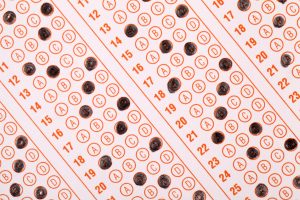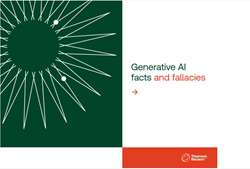 After canceling the September in-person administration of the bar exam, the Board of Law Examiners told everyone that they would provide details on the future of the examination as soon as they worked it out. Yesterday, they announced that the next step in the process will be a scheduled October online exam:
After canceling the September in-person administration of the bar exam, the Board of Law Examiners told everyone that they would provide details on the future of the examination as soon as they worked it out. Yesterday, they announced that the next step in the process will be a scheduled October online exam:
New York will administer the emergency remote option offered by NCBE, to be administered on October 5-6, 2020. Candidates registered for the September examination will be automatically registered for the October remote examination. Additional information can be found in the Court of Appeals’ statement, available at https://www.nycourts.gov/ctapps/.
This is best described as the “next step” and not “the solution” because there is mounting support within the state legislature to move to an emergency diploma privilege option, the only logical solution to the conundrum of safely processing thousands of prospective attorneys without needless delay or complication to the work schedules of their soon-to-be employers.

Why Some Firms Are Leading The Market With Generative AI
A culture of innovation with strategic AI like Lexis+ AI is revolutionizing law firms by boosting efficiency and deepening client relationships.
It’s a solution that both the deans of the law schools and the New York City Bar support — though the City Bar said they would be satisfied by an online exam as well. And the biggest reason why legal education experts and the bar association made up of practitioners at the top of their profession are coming out in favor of diploma privilege is that there’s not a single, data-driven argument for administering the exam, in any form, this year.
In its statement recapping the exam scheduling process, the Court of Appeals writes:
The Working Group rejected a temporary diploma privilege option, noting that the bar exam provides critical assurance to the public that admitted attorneys meet minimum competency requirements, emphasizing New York’s immense candidate pool as well as the degree of variation in legal curricula across the country.
This is the most effort a governing body has put into defending the bar exam this cycle. Minnesota infamously and embarrassingly wrote in circles in their order. But it’s still fairly weak tea. “Critical” is added to give the air of gravitas but still fails to address the central issue: why doesn’t a law school diploma backed by passing grades on multiple tests over the course of three years provide that assurance? Of the disciplinary actions brought in New York every year, it is clear that the ethical failings of attorneys undermine public confidence, not an attorney’s inability to recite the UCC from memory.

Generative AI Facts And Fallacies
Four insights and misunderstandings to help demystify GenAI for legal professionals.
Practicing law is, quite literally, an open book exam. Establishing “minimum competence” would be better served giving applicants a research assignment and a day to turn around a memo than a multiple choice closed book test of obscure principles governing fields of law the applicant never intends to practice. To that end, the “variation in legal curricula” isn’t a problem — it’s indicative of a profession dominated by specialization but anchored to an antiquated generalist examination.
It’s frustrating how the defenders of this exam — an exam that threatens public health in person and presents a better but still problematic set of equity concerns online — can’t bring themselves to push beyond easily debunked tropes.
In a recent New York Law Journal article, former New York State Bar and County Bar president Michael Miller pushed back against the legislature and the City Bar fell back on the same unwarranted claims. He identifies the correct questions: “Why does a bar exam exist? Why isn’t graduation from law school sufficient for admission to the bar, assuming the candidate meets our profession’s character and fitness standards?” But his answers whiff on all of them:
The exam exists because we as a profession have a duty and obligation to the public we serve to ensure that those admitted to practice law in New York meet certain basic minimum standards of competency.
This begs the above question. Given this obligation… why does the bar exam exist? We always point to the wildly competent lawyers who failed the exam and the laughably bad ones who passed. Most folks would take this as a strong indicator that the exam is not a self-evident means of advancing the profession. Instead it is flatly asserted without reflection.
Prior bar exam results consistently reflect that of those taking the New York bar exam, approximately 20%-25% will fail. This is not speculation, this is fact. Thus, if adopted, diploma privilege would admit a huge number of people who would have failed the bar exam.
This is circular. As Judge Darleen Ortega points out, the failure rate is contrived by the examiners to meet a target of 20 to 25 percent failure based on the predetermined belief that the test should be standardized to yield that passage rate. There isn’t a Platonic ideal bar exam score.
The imposition of “an expanded continuing legal education requirement for those who are granted a diploma privilege or take the online NCBE examination” as suggested by the City Bar would do little to meet our obligation to ensure minimum standards of competency, as all that is required for CLE credit is listening to the presentations.
This is central to my vision of a credible and effective future attorney licensing regime. Miller assumes “expanded CLE” would be limited to the current world of just idling listening to presentations. In a world without a bar exam, I’d envision the bar prep industry moving into a more robust CLE space that offers quizzes or short assignments to secure practice area certifications. An attorney could still be licensed but to advertise a Gold Star rating in, say, Trusts and Estates, and there would be additional hurdles. Not only shouldn’t we scoff at expanded CLE, it’s part of the aforementioned “duty and obligation to the public” to make this more than an empty tradition.
Honestly, if you want proof that the bar exam persists mostly as a hazing mechanism now, look no further than the bedrock commitment to a world where attorneys past their first year can treat CLE as a background hum. Grueling exam to get in… blow off lectures to stay there. So much for public protection.
We don’t even need to get into many arguments beyond public health why the bar exam fails the public and the profession — for that, check out our recent conversation with one of the authors of this piece — the advocates for the unquestioning acceptance of this tradition can’t even make their own case.
Move to emergency diploma privilege. Use the experience to generate concrete data on the value of the exam to the public.
And then start rebuilding attorney licensing from the ground up around something that actually protects the public.
Diploma Privilege Proposal Is ‘Deeply Flawed’ [New York Law Journal]
The Pandemic Is Proving the Bar Exam Is Unjust and Unnecessary [Slate]
The Bar Exam: A List of Famous Failures
Earlier: Veteran State Court Judge Rips Bar Exam, Says Test ‘Does Not Function To Protect The Public’
State Supreme Court Hears Public Health Concerns, Ignores Public Health Concerns
BREAKING: New York Cancels September Bar Examination
New York Law Deans Demand Diploma Privilege For Law School Graduates Instead Of Bar Exam
New York Legislature Gets Involved In Push For Diploma Privilege
 Joe Patrice is a senior editor at Above the Law and co-host of Thinking Like A Lawyer. Feel free to email any tips, questions, or comments. Follow him on Twitter if you’re interested in law, politics, and a healthy dose of college sports news. Joe also serves as a Managing Director at RPN Executive Search.
Joe Patrice is a senior editor at Above the Law and co-host of Thinking Like A Lawyer. Feel free to email any tips, questions, or comments. Follow him on Twitter if you’re interested in law, politics, and a healthy dose of college sports news. Joe also serves as a Managing Director at RPN Executive Search.